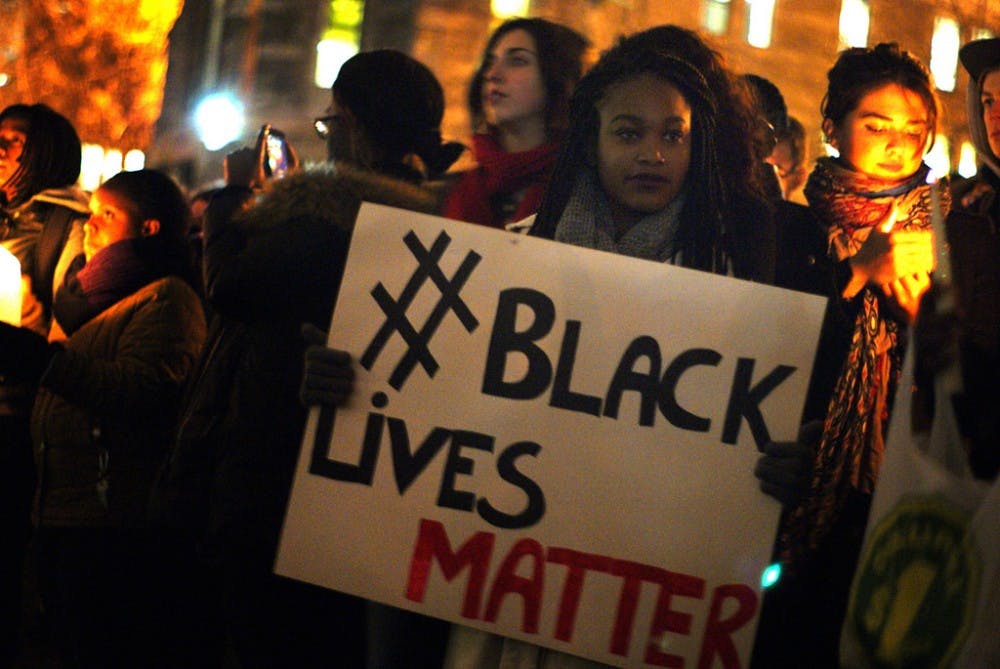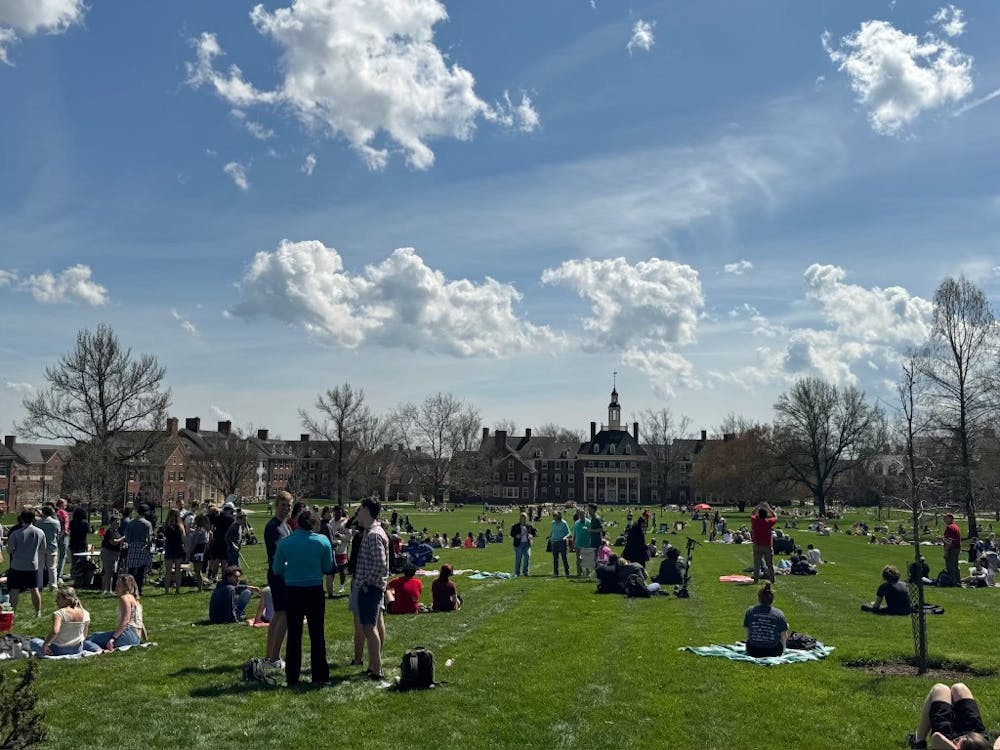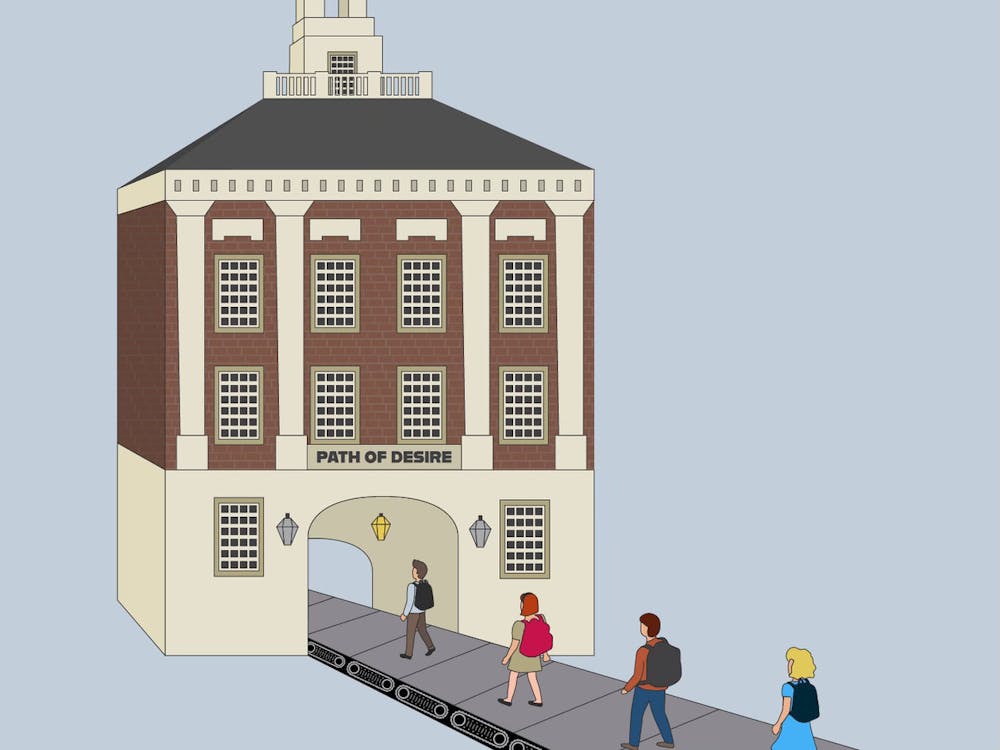Milam's Musings
When it comes to discussions of race and, in particular, the rise of the Black Lives Matter movement, I find my fellow white people frustrating.
There are few other issues where white people, as a default, are on the defensive, reactionary and quick with an opinion. And often in my experience talking to and engaging with people on the subject, that opinion is couched in misunderstanding and ignorance and at worst, stereotypes and racism of black people.
To assure you, the reader, that I'm not just creating a fictitious opponent in order to establish my own point, merely Google what Sean Hannity, Bill O'Reilly and Glenn Beck, among others, have said about BLM.
All those men, combined, carry weight among conservatives and, consequently, white people. In particular, those men have been furthering the idea that Black Lives Matter is itself racist and, more insidious, that the movement pushes for the death of cops and white people. Hannity specifically said as such on his Sep. 2 radio show.
O'Reilly called it a hate group and also said BLM wants dead cops. Beck hosted a "Restoring Unity" march in Birmingham on Aug. 30, that was essentially an "all lives matter" counterpoint to BLM, where some 20,000 people marched.
Moreover, there's been talk of a "Ferguson effect," wherein it's attested that violent crime is ticking upward in cities across America and it's attributable to the BLM protest in the aftermath of Ferguson in 2014.
The New York Times itself pushed this narrative and were rightly lambasted for doing as such. The Times hid behind anonymous "experts, rank-and-file officers" to push this baseless theory.
Within the Times' own piece, after floating the theory, the Times cites an actual expert, Richard Rosenfield, criminologist from the University of Missouri-St. Louis, who said homicides in St. Louis had already begun to arc upward in 2014 before Michael Brown's death.
Furthermore, at FiveThirtyEight, author Carl Bialik clarifies this "crime wave," he called "cherry-picked data." For instance, instead of picking a random selection of 10 cities, as the Times did, FiveThirtyEight selected the top 60 cities and came to this conclusion:
"While a 16 percent increase in U.S. major-city homicides is statistically significant, it comes after decades of declines - the murder rate fell by more than half nationally from its peak in 1980 to 2012," Bialik said.
Unfortunately, this lack of perspective and scare-mongering from conservative pundits and from established media entities, like the Times (NPR, CNN, USA Today and the BBC are other culprits), is effective at contributing to misunderstanding.
Enjoy what you're reading?
Signup for our newsletter
I offer two examples: 1.) Even though gun homicides are down 49 percent since their 1993 peak, 56 percent of Americans, as of a 2013 Pew Research poll, thought gun homicides were actually higher than at the 1993 mark. 2.) A Sept. 2 Rasmussen poll found that 58 percent of Americans believe there is a "war on cops."
Let me start unpacking this now. First, let's start with the elementary, but perhaps most divisive part of the whole issue: BLM is not a movement asserting that black lives matter "more than" white lives, but rather "as much as" white lives in a country that historically and presently suggests otherwise.
It's the same reason there needed to be a women's suffrage movement at the turn of the last century or a feminist movement in the 1960s - not because men didn't matter, but because women lived in a country where they didn't matter as much.
This isn't the column to do a full fleshing out of why there needs to be a movement to assert that black lives matter, but it's indisputable that blacks are disproportionately killed by the police (meaning, as a rate of their population, not raw numbers because obviously in raw numbers, whites are killed more ... because there are more whites in the United States) at twice the rate of whites or Hispanic or Latino people and in cases where the victim is unarmed, blacks are seven times as likely to be that victim.
Beck and others insist, as deflection of this fact, that blacks are more often killed by other blacks. But this is stating the obvious. Whites are also mostly killed by other whites, as crime is the confluence of opportunity and proximity; as in, whites tend to live with other whites and the same holds for black people.
For Beck and others to then further insist that black people don't care about this crime in their community is the height of stupidity. Here in Cincinnati and in cities all over the U.S., there are anti-violence marches constantly.
One last point: the peak of lynchings of black people was between 1889 and 1898 when 1,613 were lynched. However, black people were still more likely to die by the hands of another black person. Now, as a thought experiment, if Beck or others countered a black person worried about lynching then to worry about "black-on-black crime" instead, how vapid do you think they would look?
Finally, there is no war on cops. Any way you want to look at it, whether raw numbers or rates of police killings or police assaults, police are safer than they've been in decades, if not ever.
Radley Balko for the Washington Post points out that 2015 is on pace to see 35 felonious killings of police officers.
"If that pace holds, this year would end with the second lowest number of murdered cops in decades," Balko said.
The first lowest in decades was 2013, so as Balko said, when pundits and cop advocates point to an increase from 2013, they forget to add in the perspective that it's an increase from a historic low.
Assaults on officers are also down over the last 15 years, further adding to the point that police aren't out there in a war zone.
If one looks at police deaths as a rate, 2015, after 2013, would be the safest year for police since tracking began in 1870.
Here's the other interesting point -- look at what I just said: tracking that started in 1870. We have good statistics on number of police killed going back to a few years after the Civil War. Contrast that with 2015 being the first year, thanks to the Washington Post and The Guardian, where we have any solid idea of how often the police kill citizens.
The FBI started tracking the numbers in 1976, but there have long been reporting issues.
To best illustrate how lacking the FBI stats were, the FBI never reported a year with more than 460 police shootings. The Washington Post has counted 686 in the first nine months of this year. If going by The Guardian's counting, it's 815. (It's a matter of methodology, the Post is only tracking on-duty fatal gun shootings, whereas The Guardian is counting any death by the hands of the police.)
If the pace holds (going with The Guardian's number since it's more comprehensive), 1,100 people will be killed in some manner by the police at year's end. Do we want to live in a country prior to 2015 where 640 deaths, year in and year out, go unaccounted for? Whether you think they're all probably criminals and deserved it or not, I prefer to know what my government is up to, especially when they're killing us.
This should be a no-brainer for supposedly limited government types, like Hannity and O'Reilly.
It would seem, when taking into account the disproportionate number of blacks killed in those numbers, that blacks lives, prior to this accounting and the BLM movement, didn't matter.
Protest movements are supposed to make people uncomfortable and in response to that discomfort, white people tend to ignorantly lash out.
I implore white people to resist the urge to respond to that discomfort with hostility rather than understanding and empathy.




